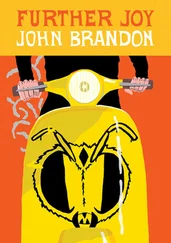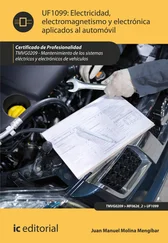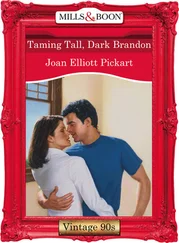“Yeah,” the other replied. “Or they could be in Las Cruces.”
The gas station owner assured them he’d be back in a month or two. He apologized for their scant training. The sisters were from Golden. They had been hired on as waitresses in Lofte’s restaurant just a few weeks ago but business was falling off by the day and the diner couldn’t keep them. They were relieved to have these new jobs. They were eager for the chance to organize, to be in charge. The gas station owner gave them a number to call if there was a problem customer.
“Take Sundays off,” he told them. “Unless you don’t believe in taking Sundays off. In that case, open on up.”
He held out a list of vendors, complete with shipment sizes and frequency. The skinny sister leaned forward and took the paper, then handed it to the other.
“What I do is, every time I get five hundred dollars I drop it in the safe.” The gas station owner pointed to the back room.
“We’ll do it every three hundred,” said the skinny one.
She was more talkative than her sister. She was notably skinny, and the quiet one was thin to a normal degree. They dressed about the same, with white T-shirts and chopped hair.
“Can we bring our dog?” the skinny one asked. “A phone number for a thug is one thing, but the dog would be more…”
“Preventative,” said the other.
“That’s the sort of thing I’m going to leave up to you,” the gas station owner said. “I’ll have to tell Mayor Cabrera you think he’s a thug. He’ll like that.”
The gas station owner lowered the blinds. He came out from behind the register, as if to give a tour, but everything in the shop was in plain view.
“Make sure the oldest dairy stuff is at the front of the case. It’s mostly chocolate milk and half-and-half, which takes a while to spoil.”
“Question,” said the skinny sister. “How come no energy drinks?”
“I don’t know,” said the gas station owner.
“Sunglasses,” the other sister said.
“Yup,” resounded the skinny one. “Put a rack right in that corner. We’re in the desert, after all.”
The gas station owner thought of his rucksack, almost fully packed. He hadn’t considered sunglasses. He was enjoying the preparation a bit too much, getting packed and rested. He was getting ready to test himself, not go on vacation. And if he were being strict he would’ve left his whole future to the elements, would’ve severed ties with the known world, which would’ve meant leaving the station untended. He was giving the station a fighting chance to survive his absence, he told himself, only because that was better for everyone — these girls, the failing town — not because he cared about the place.
“This is embarrassing,” he said. “I forgot your names.”
“Don’t worry about our real names. We’ve been Dewey and Binky since we were this high.”
“Do you have a nickname, Mr. Fair?”
“Well. Shade Tree.”
“Because he’s tall,” said the regular-sized sister.
“Probably other reasons,” replied the skinny one. “Nicknames say a lot.”
“I can’t wait to have a child,” said the regular-sized sister. “I can’t wait to nickname that little sucker.”
Back at home, the gas station owner returned to his rucksack. He was taking a knife, a knife he’d sharpened to the point of being almost too sharp, a knife that if it rubbed enough against its leather sheath would slice right through. He was bringing jerky, dried fruit, nuts, coffee. He was bringing water, many layers of clothing, toilet paper, lip balm, sunscreen, lighters and matches, a hat he’d bought special, a compass, a watch. He was taking a notepad and a pencil, to count the days. He was bringing both a thin hotel room Bible and his bulky Manhattan Project book. He was not taking a shotgun. This was foolhardy, he knew, but he wanted everything to fit in his sack. He was taking a.38 revolver. He did not want to take cash, but probably he would. It seemed like it would sully the endeavor, cash, but probably he would take some. The desert never played by rules or stood on ceremony, and the gas station owner wasn’t going to either. He wouldn’t leave his station unmanned. He wouldn’t set off unarmed or without money. What mattered was getting into the center of something he’d spent his life dawdling on the edge of.
He arrived early and Dana shooed him out to the balcony. This had happened before. She didn’t want him to see her applying makeup. She didn’t want him to stand around and look at her in her jeans and T-shirt. She was in the shower now. Mayor Cabrera could hear the water.
The balcony was tiny. You had to maneuver yourself around the door to get out there. You had to scrape your belly on the doorframe. No room for a table, not by a long shot. There was a pretty stone hill to look at, spiked with sapling evergreens. Mayor Cabrera did not understand why if you were going to bother constructing balconies, if you were going to draw balconies into your blueprints and procure the materials and burn the man-hours, why you wouldn’t make the balconies two feet bigger and then a couple could sit out here with a place to put their drinks.
Mayor Cabrera heard the water cut off and then a few minutes later heard clinking sounds from the kitchen. Dana always prepared a snack plate to put near the bed. Mayor Cabrera could picture the look on her face as she sliced up the fruit. He very suddenly felt dizzy and reached his hand to the railing. The balcony felt high up, a lot higher than two stories. Usually, by this stage, Mayor Cabrera was like Pavlov’s dog. He should’ve been at full ready by now, and he was not. He wasn’t experiencing a hint of readiness. He felt snuck up on and disoriented and wanted off the porch.
He entered the condo and crossed over the cushy rug in the den and leaned in the archway of the kitchen. Dana paused in her cutting but didn’t turn to face him. The kitchen smelled like melon and there was a tiny window through which could be seen a vast canyon view.
“None of this seems in season,” Dana said.
“No?” said Mayor Cabrera. “Well, it’s the desert. The only thing that’s ever in season is chile peppers.”
“Where do cantaloupes come from, anyway?”
“Cantaloupes,” said Mayor Cabrera. “I guess I have no idea.”
Dana resumed her slicing, rising onto the balls of her feet for leverage. Mayor Cabrera examined the back of her, and when it did nothing to help him he looked away. Dana had a bunch of liquor bottles on a high shelf above the window. Mayor Cabrera knew most of the bottles had likely been gifts from clients. Dana only drank gin. He didn’t want to ask her about her Christmas, didn’t want to know who she’d spent it with. He hoped just with her mother in Abilene.
“What is that thing?” he said.
Dana turned her head to see what he was pointing at. “Oh, that’s a holder for glasses. A glasses rack.”
“How does that work?”
“Eyeglasses, not drinking glasses. It doesn’t work, though. The glasses fall off.”
“You’ve got a lot of glasses,” said Mayor Cabrera.
“Fourteen pairs.”
Dana set the plate she was working on aside and cut into something new. The new smell was stronger, earthy and cloying.
“A kid I used to tutor gave it to me. It doesn’t work for glasses but I put mail under it.”
Mayor Cabrera knew Dana had been a tutor for years, all through her twenties. She’d been to a few years of college. She’d told him she’d preferred tutoring girls because the boys always liked her too much. They always showered and put on good clothes for the sessions. She’d had to buy baggy sweat suits to wear. It was math she used to tutor. The sound of her voice seemed like it might be helping Mayor Cabrera with the lack of anything happening in his pants. He felt something , he thought.
Читать дальше












